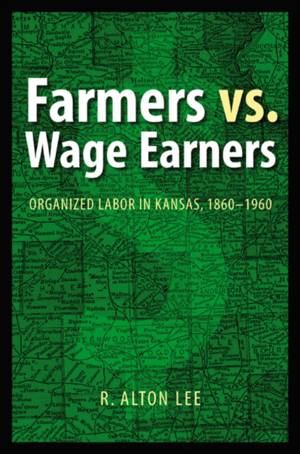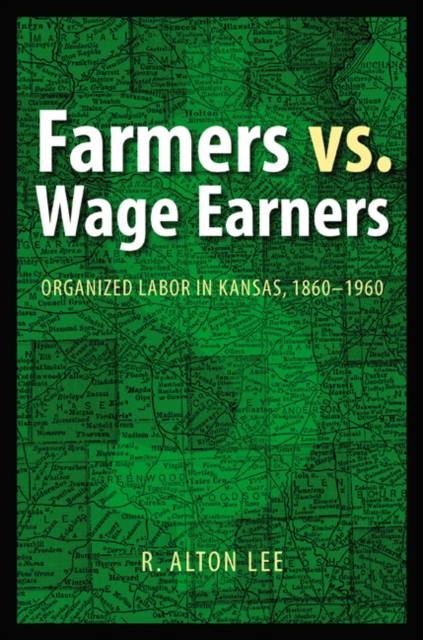
- Afhalen na 1 uur in een winkel met voorraad
- Gratis thuislevering in België vanaf € 30
- Ruim aanbod met 7 miljoen producten
- Afhalen na 1 uur in een winkel met voorraad
- Gratis thuislevering in België vanaf € 30
- Ruim aanbod met 7 miljoen producten
Zoeken
€ 38,45
+ 76 punten
Omschrijving
While predominantly agrarian, Kansas has a surprisingly rich heritage of labor history and played an active role in the major labor strife of the late nineteenth and early twentieth centuries. Farmers vs. Wage Earners is a survey of the organized labor movement in the Sunflower State, which reflected in a microcosm the evolution of attitudes toward labor in the United States. R. Alton Lee emphasizes the social and political developments of labor in Kansas and what it was like to work in the mines, the oil fields, and the factories that created the modern industrial world. He vividly describes the stories of working people: how they and their families lived and worked, their dreams and aspirations, their reasons for joining a union and how it served their interests, how they fought to achieve their goals through the political process, and how employment changed over the decades in terms of race, gender, and working conditions. The general public supported labor after the Civil War, but increasing urbanization and the farmer-dominated legislatures helped quell this sympathy, and new ire was eventually directed at the workingman. By examining the progress of industrial labor in an agrarian state, Lee shows how Kansans, like many Americans, could eagerly accept the federal largesse of the New Deal but at the same time bitterly denounce its philosophy and goals in the wake of the Great Depression.
Specificaties
Betrokkenen
- Auteur(s):
- Uitgeverij:
Inhoud
- Aantal bladzijden:
- 342
- Taal:
- Engels
Eigenschappen
- Productcode (EAN):
- 9780803220812
- Verschijningsdatum:
- 1/12/2008
- Uitvoering:
- Paperback
- Formaat:
- Trade paperback (VS)
- Afmetingen:
- 152 mm x 229 mm
- Gewicht:
- 526 g

Alleen bij Standaard Boekhandel
+ 76 punten op je klantenkaart van Standaard Boekhandel
Beoordelingen
We publiceren alleen reviews die voldoen aan de voorwaarden voor reviews. Bekijk onze voorwaarden voor reviews.







